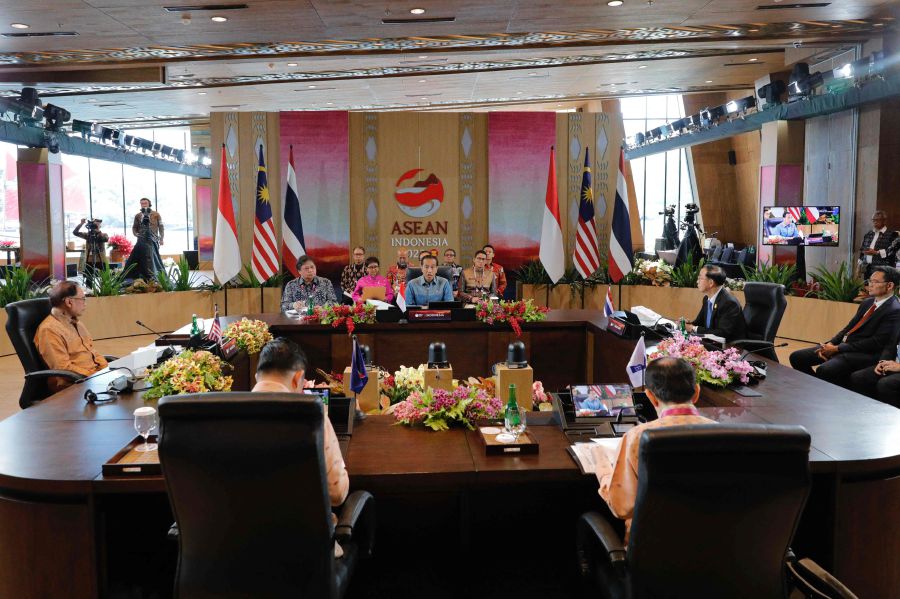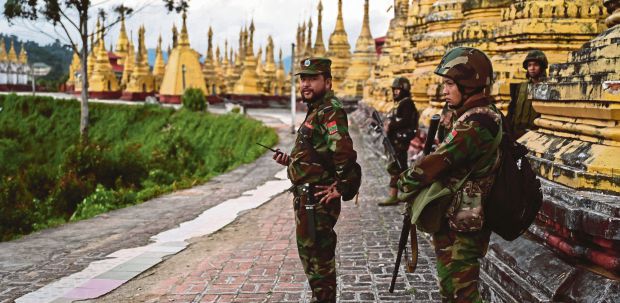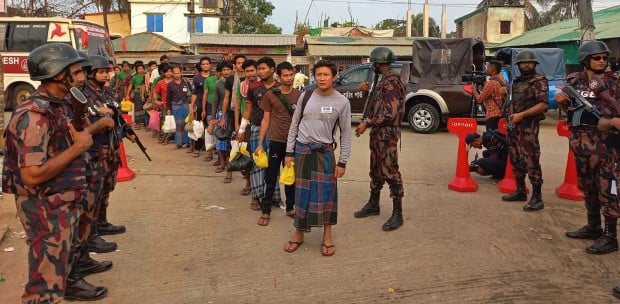THE 42nd Asean Summit this week under the chairmanship of Indonesia comes at a particularly pivotal moment for the grouping of 10 Southeast Asian nations.
The military coup which overthrew Myanmar's democratically-elected government two years ago unleashed a brutality that reportedly has placed civilian deaths as high as almost 20,000.
According to the United Nations, some 1.2 million people have been displaced as the military cracked down against widespread protests and over 70,000 have left the country. Worse, this latest Myanmar political upheaval has tested Asean's collective coherence as never before.
Long averse to anything resembling interference in the internal affairs of its member states, the latest coup proved to be something of a watershed as it forced Asean to take a stand, effectively suspending the country's membership in the grouping and coming up with a five-point peace plan to resolve the simmering crisis.
The fly in the Asean-imposed ointment has been the Myanmar military junta's refusal to meaningfully engage the grouping in implementing the peace proposals.
Myanmar's official intransigence has a cost beyond that largely borne by the suffering of its people. It is also costing Asean in terms of its credibility as an honest broker for regional problems.
The longer the Myanmar regime drags out the crisis it had precipitated, the greater the chances of it consolidating its hold on the country. It, therefore, sees little to gain by engaging with Asean and talking peace, unless it is peace on its own terms.
Long accustomed to a stubborn isolationist streak, Myanmar's ruling generals do not seem perturbed by the Asean attempt to leave them out in the diplomatic cold.
Moreover, tensions between the Western nations and Russia and China over the Ukraine crisis comes as something of a godsend for Myanmar's current rulers. Shunned by the West, Myanmar has found common cause with Russia and lost little opportunity to forge closer links with Moscow.
China, which cultivated a good working relationship with the previous elected Myanmar government and should logically be alarmed by the military's overthrow of that government, seems lately to be frustrated that the crisis is prolonged and not getting resolved.
Ever the pragmatist, China most recently lent the Myanmar regime much sought-after diplomatic cover with a visit by Chinese Foreign Minister, Qin Gang, to the country and an expression of China's own readiness to help forge peace in Myanmar.
This must all be music to the ears of Myanmar's generals. Equally, it must be treated by Asean's leaders with some alarm. For what may be at stake is not just the ability of Asean to solve its own problems. Perhaps, of far greater importance is the question of what will become of the already tenuous notion of Asean "centrality" if China were to step in with its own diplomatic initiative to resolve the Myanmar crisis.
Asean national leaders and in particular President Joko Widodo, as the sitting Asean chairman and leader of Asean's largest country, have an unenviable task ahead of them. They must somehow wrest anew the initiative to bring some measure of closure to this festering wound that is Myanmar.
Amidst today's global economic uncertainties and geopolitical competition by the great powers and with our region and the South China Sea as critical theatres anew for such great-power rivalries, the challenges confronting Asean national leaders today are perhaps no less formidable to those confronting the leaders who gathered in Bangkok in 1967 to establish the organisation.
The utility of Asean may be debated by people within each member-nation but most surely recognise that the grouping allows its members to punch above their individual weight.
Renewed resolve must be found to overcome the possibly existential threat to Asean that Myanmar today poses.
The writer views developments in the nation, region and wider world from his vantage point in Kuching.






